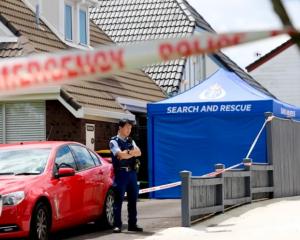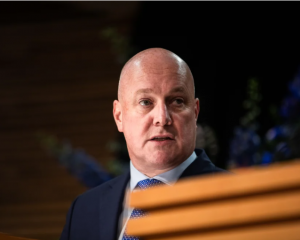
Mr Joyce said yesterday he would seek rule changes to ban voice calls and texting, subject to recommendations from officials and Cabinet approval.
He is expecting a report within weeks from the Ministry of Transport on public consultations which were overlapped by the general election in October.
He said he understood there was a "broad level of consensus" concerning the banning of hand-held cellphone use by drivers.
Although officials were busy preparing recommendations for public submissions on a range of road safety actions expected to be taken next year, to reduce dangers such as drink-driving and excessive speed, Mr Joyce said he was keen for the cellphone issue to be dealt with in the meantime.
The consultations followed a proposal by the previous Labour-led administration, but only after years of discussions, to fine drivers $50 and impose 25 demerit points for using hand-held phones or personal digital assistants.
Even cellphone giants Vodafone and Telecom came out in support of bans early last year, after a young man was convicted of killing an elderly Ashburton couple while texting and driving under the influence of alcohol.
Road safety researchers have estimated that the risk of crashing while using a cellphone while driving is between four and nine times higher.
The research showed that using cellphones while driving made motorists as impaired as drunk drivers.
Cellphone use was blamed for 96 crashes in 2007, but the Automobile Association suspected that statistic was conservative, as it believed the police had only relatively recently made a routine practice of searching crashed cars for phones.
Drivers are still likely to be allowed to use hands-free connections, despite Waikato University research showing them to be little or no safer than hand-held cellphones.
AA spokesman Mike Noon accepted there was little difference, but said the organisation was taking a "practical" view in considering that a ban on hand-held cellphones supported by 76% of surveyed members would at least deter drivers from taking their eyes off the road to make calls.
Waikato University road safety researcher Sam Charlton said cellphone conversations of any kind almost doubled the time it took drivers to react to hazardous situations.
An extra two seconds would add 55m to the stopping distance of a driver travelling at 100kmh.
But Dr Charlton said any ban was better than none, and he hoped that once it was in place, public education would persuade drivers there was no difference between using hand-held and hands-free cellphones or facing any other kind of distraction, "because when you are driving, you really need to focus on the driving"












